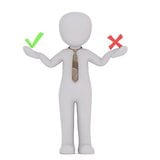How to learn Dutch? Tip 6 Building your Dutch vocabulary: What should you not learn?
Dutch course Eindhoven
The Dutch language has 1 million words*. You do not need to know so many words. You will feel fine if you will have approximately 5.000 – 10.000 words in your Active vocabulary and several times as much in your Passive vocabulary. You do not have to learn every word which you come across. How are you going to learn fast and achieve your goal?
*Source: Het Nederlands-Vlaamse Instituut voor de Nederlandse Taal.
What is the learning strategy?
I will explain to you how you can progress fast in a short period of time. You need to pay attention to 2 things:
- What do you spend your time on?
- What do you learn?
Use this vocabulary filter:
Try to filter all new words like this:
- Do I need this word in my everyday life?
- Do I need this word for my job?
If you answer is Yes, then it is the right word to remember! You need to build up your vocabulary in steps. This is a good Vocabulary Filter for a beginner. When you will be able to speak Dutch, you can expand your filter and upgrade it to your needs at that level. I hope you got an idea of Vocabulary filtering.
Example: Try not to learn all sorts of different animals in the beginning. All of them can be replaced with one groups word: Dieren. You can always ask: Wat is de naam van dit dier? All nouns (like kaas and brood) related to the food, you can learn in a supermarket when you do your groceries. When you see cheese with a price tag Kaas 5 euro, what could this word (kaas) mean? You will understand the meaning of this word without any translation. This is also a part of Passive learning.
Why should you build the foundation of your speaking first?
If you are going to learn all words which you come across, you will build a vocabulary of words which you will rarely use in you speaking. The development of your speaking skills will suffer from it. You need to build your simple Dutch first so that you will be able to have simple conversations in Dutch and learn new words from them.
You are building your Dutch-speaking like building a house. Simple Dutch is the foundation of your speaking. If you are not going to have enough everyday words in your active vocabulary, you will not be able to speak fluently, you will not be able to develop your speaking and you will not be able to learn Dutch from conversations. Learning from conversations is a fast way to progress and build your active vocabulary.
What’s next? Learning tip 6 What should be your first strategic goal as a beginner?
| A = aa | N = en |
| B = bee | O = oo |
| C = cee | P = pee |
| D = dee | Q = quu |
| E = ee | R = er |
| F = ef | S = es |
| G = gee | T = tee |
| H = haa | U = uu |
| I = ie | V = vee |
| J = jee | W = wee |
| K = kaa | X = iks |
| L = el | Y = ei |
| M = emm | Z = ei |
Learn Dutch by Yourself:
Learn Dutch with us!
Enrol in our next Online Dutch Course >


